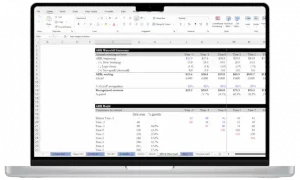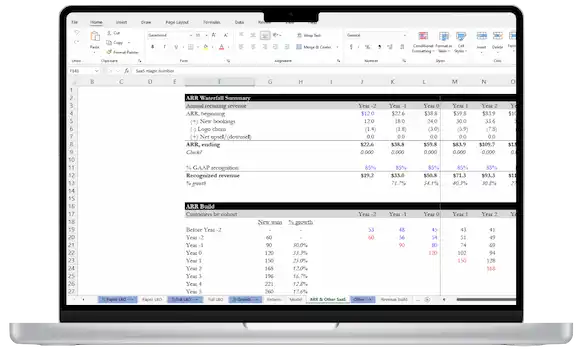Private equity is one of the most challenging jobs to get into.
The competition is fierce, with thousands of other applicants competing for the same job and willing to work long hours.
But how many hours are we talking about?
That’s where I come in. I’m here to help give you a better understanding of the type of work you can expect and how many hours you’ll need to put in to make a success.
Let’s get into it.
What Kind of Work Do You Do in Private Equity as an Associate?
Your work spectrum is quite broad as a private equity associate. Here is some of the work you can expect to do.
- Sourcing investments: Firms make money by making new investments; that’s the bottom line. Part of your job is to find good opportunities for your company to invest in. Especially if you’re in growth equity, this is a big part of your job.
- Meeting with management teams: Establishing contact with management teams to inquire about a transaction is the first step.
- Deal execution: Once you’ve sourced an investment, it’s your job to assess and execute new investments through valuation, investment memo writing, and modeling.
- Supporting investor relations: Associates will also be tasked with helping support your investors relations team. You may need to prepare pitch decks on new deals and/or supply data about ongoing investments.
- Monitoring portfolio companies: You need to ensure the portfolio companies are running smoothly and hitting their plans. You will be involved in the financial planning and analysis. However, if there is more work to be done in the day-to-day due to staff shortages or a big sale process, you might need to help with that. You’ll also be involved in preparing for quarterly board meetings.
- Conducting market research: Keeping apprised on what’s happening with competitors and overall market trends is critical.
The above can vary a lot based on private equity associate roles or career progression. For instance, analysts do mainly “sourcing,” while partners and principals are there to woo prospective clients and get them on board.
You’ll need to get used to putting the groundwork in and someone else closing the deal. But if you stick at it, you’ll get to the good stuff.
How Many Hours Do Private Equity Associates Work?
This can vary quite a bit depending on the size of the firm you work for and how many investments you have on the go.
Generally, as an associate, it takes a lot of groundwork to show that you are dependable and trustworthy. Investors need to know they can rely on what you say and the analysis you’re producing.
The average during a busy time for associates and analysts is usually around ~60-70 hours per week. But it’s all dependent on how many deals and investments are on the go.
The above hours will vary based on if there’s a live deal. Basically, everything goes on hold, and you need to be available 24/7. I mean that quite literally. If someone calls at 11 pm because of a time difference or market change, you must be ready to jump into work. You can expect to work 80+ hours a week when live deals are in motion.
If there is a “slow time,” take advantage; it isn’t likely to happen very often. Here you can work about 50 hours a week as an associate in private equity.
How Many Hours Do Senior Private Equity Folks Work?
As you progress in the industry, you’ll begin to have less time in office.
For instance, while associates are logging ~60 hours on typical weeks. I’d estimate the vast majority of principals or managing directors are only in the office for “typical hours” of around ~50 hours a week, unless there’s a live deal.
You may also find your requirements change as you move up. You’ll likely work more from home and travel quite a bit to get clients on board.
It’s relatively safe to say that you can take off ~5 hours per week off for each promotion you get; however, while more senior roles are not “in office” they are likely doing more travel and are “always on” thinking about work and deals, etc.
How Private Equity Hours Compare to Investment Banking
Most private equity associates have an investment banking background. So, they’re ready to hit the ground running from day one.
An associate understands the market, financial models, and what to look for. This makes them extremely valuable to private equity firms.
The good news? Investment bankers tend to have longer hours than associates in private equity. So, if you’re jumping off the investment banking train, you’ll enjoy the shorter hours in the office in private equity.
However, this doesn’t mean that the work is any easier. You’ll be putting in a lot more thought and care at work.
During a live deal, you may even work longer hours than you did in investment banking, depending on what stage the deal is at.
The reason why?
The level of responsibility goes up 10x. Private equity associates are responsible for so many moving pieces on a deal, and that means a lot more pressure. There’s also no place to hide. In investment banking, often you can “hide” behind the fact that there’s a large deal team. Whereas, in private equity, deal teams are small and you’re expected to carry your weight.
This isn’t meant to scare you off — I actually think it’s quite exciting and more fun to have this added responsibility. However, it’s clearly not for everyone.

- 66 lessons
- 12+ video hours
- Excels & templates
How Private Equity Hours Compare to Management Consulting
Some associates at a private equity firms come from a management consulting background. They have a deep understanding of working with clients and managing how companies portray themselves.
In terms of hours, management consulting usually means a lot of travel. If you’ve ever been in consulting, you know getting to clients is a massive part of the job. Many consulting jobs require travel Monday through Thursday every week.
If we compare this with private equity, your hours are primarily spent in the office, particularly at the start. You will certainly travel in private equity (to meet with investment targets, to go to conferences, to attend board meetings, etc.) but nowhere near as much as in management consulting.
While the travel will be less, the work in private equity is very stressful and demanding, so the hours you actually spend working may be more stressful or mentally demanding.
Perks of Working in Private Equity
So, after learning how much work you’ll be putting in, you’ll be happy to know that it’s not all for nothing.
As many people know, working in private equity can be very lucrative. While the long hours can be a deterrent, it’s safe to say that you are well compensated for your hard work.
The perks of working in private equity include:
- The money: Look, nobody would work this hard if there weren’t at least some sort of monetary gain. The longer you stay at a firm, the higher your earning potential. Stable employees in the investment game are like striking gold.
- High prestige: Private equity positions are so hard to get, and they pay so well, that many view them as being one of the top positions out there
- Super interesting & ambitious people: In private equity, you’ll not only be surrounded by incredible colleagues, but you’ll also get to interact with business people and portfolio companies from many interesting parts of the world (this was one of my personal favorite parts of being in the industry)
- Exit opportunities: After private equity, you can go into all kinds of positions, including finance roles at portfolio companies, leadership roles in startups, other kinds of investing, etc.
FAQ
Is a private equity associate job successful?
Yes, the money in private equity is great. But apart from that, the experience is invaluable. As an associate, you really get to learn new facets of corporate finance and investing from the ground up. I felt as though it was critical to “completing” the skillset that I’d started to develop during my time in investment banking.
Is working at private equity firms demanding?
It can be. If you’ve got a live deal, you must be available at all times. The hours can be long and tedious. But as you work your way up, the hours spent in the office decrease.
Is private equity a secure job?
Getting into private equity firms is challenging. Roles are few, and thousands are vying for the each job.


 Break Into Growth Equity
Break Into Growth Equity

